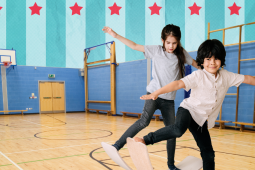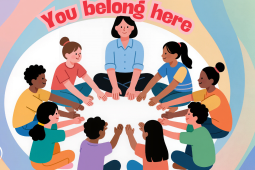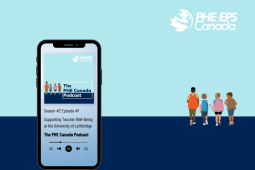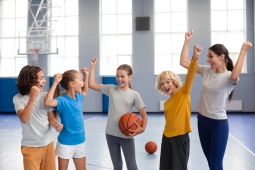Dodgeball Discussion Needs a Reset
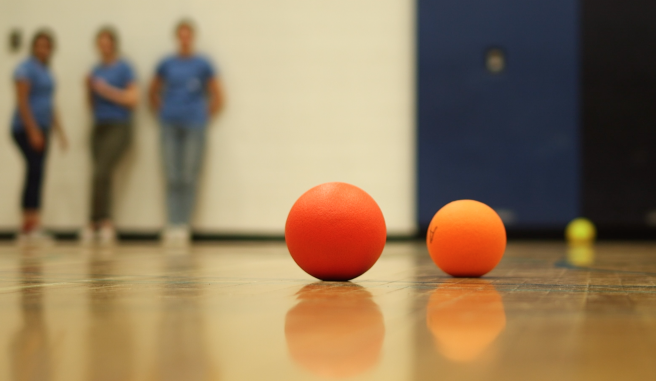
What’s in a game?
Recently, members of the physical and health education community have posed this simple but fundamental question. The answer, as you might guess, is complex.
The current debate around dodgeball arose during the 2019 Congress of the Humanities and Social Sciences (CHSS), held recently in Vancouver. There, Joy Butler, professor of curriculum and pedagogy at the University of British Columbia put forward that dodgeball reinforces violent behaviour, bullying and an uncaring learning environment, does not align with “anti-oppressive” teaching practices and is, therefore, “miseducative”. Dodgeball, either as part of physical education or schoolyard games, leaves students powerless, is "tantamount to legalized bullying", and wholly unhelpful to the healthy development of citizens in a liberal democracy, she says.
Not surprisingly, the reaction on both sides of this debate has been swift. The debate has garnered much global media interest and reporting, even trending on social media.
Physical and Health Education Canada (PHE Canada) first wants to state that it welcomes this debate. We applaud the researchers, as well as those that have contributed to this discussion to date. They bring forward their critical analysis, objective thoughts and invitation to PHE practitioners to consider what is good - or not good - for our children’s health, well-being and future success in society. Moreover, this debate is not new. Whether dodgeball, tag, capture the flag, red rover or other games and sports that include robust play or complex competition, we have been here before. Then, as now, PHE Canada invites its partners, clients and other friends of physical and health education in Canada not to take sides – rather, to take a step back.
The dodgeball discussion needs a reset.
Recently, PHE Canada was part of the discussion at the request of CBC Radio where it shared its position on this issue. We were in good company, joined by Dodgeball Canada, education expert Dr. Gordon Bloom from McGill University and Dr. Joy Butler herself. It was here that PHE Canada invited colleagues to consider that the traditional game of dodgeball may not be the problem. Rather, it is an example of how today’s complex and challenging social issues are sometimes manifested and visible in select games and sports.
With this in mind, educators and students are better supported by resetting the conversation around three important imperatives for action.
Quality care
PHE professionals have a role to play in caring for the whole child as they implement their mandate to promote and advance quality health and physical education opportunities and healthy learning environments for children and youth. The expectation is that they consider the entire range of physical, social, emotional, psychological and spiritual dimensions of a child’s healthy growth and development. A big responsibility, to be sure. In this role, they need information, tools and knowledge to navigate through complex social trends and challenges as they continue to bleed into every aspect of education.
Quality social climate
PHE professionals are not in this alone. They are part of a broader team of administrators and educators who aim to foster a quality social climate in schools that is inclusive, supportive and safe for every child. Moreover, we are seeing a purposeful shift in policies and programs in schools that can contribute to this outcome. These include policies that address gender equity, ethical behaviour, mental health programming, as well as supportive social environments for LGBTQ2SA+ students, for example. New policies that address anti-racism, anti-bullying, anti-discrimination and anti-harassment are increasingly in place. As well, efforts at addressing oppression and the lasting, negative effects of colonialism for Indigenous students and their families are growing in number and impact. These are tools in the hands of PHE professionals and others to help build quality social climates in schools.
Quality choices
In our role as educators, we work to empower students to make the right choices at school and at home. We need to empower our teachers to make quality choices, as well. While Dodge ball rules have evolved over the years, it is true that traditional dodgeball may not be the best choice for PHE professionals or for their students, given that it has the potential to perpetuate negative and potentially harmful social and physical interactions among students. However, we need to put the ball - literally and figuratively - in the hands of PHE professionals who face these decisions and choices every day. In doing so, they can be empowered to protect kids from harm in all its forms, secure consent in advance where games involve physical contact, afford all children equal access, provide options and alternatives, and ensure all kids are not otherwise alienated or marginalized.
What is in a game? With proper focus on quality care, a quality social climate, and quality choices by educators, every game can help our kids to develop a sense of community, healthy relationships, problem solving, self-regulation, physical literacy and a life-long pursuit of active living.
PHE Canada is proud to be part of this discussion, because its mandate includes bringing forward solutions-focused options. For every PHE professional in Canada, PHE Canada’s people, products and services aim to make your job more effective, meaningful and impactful.





